Computing & IS
EASLIS@60: Information scientists called to contribute to the national transformation and development
Published
2 years agoon
By
Jane Anyango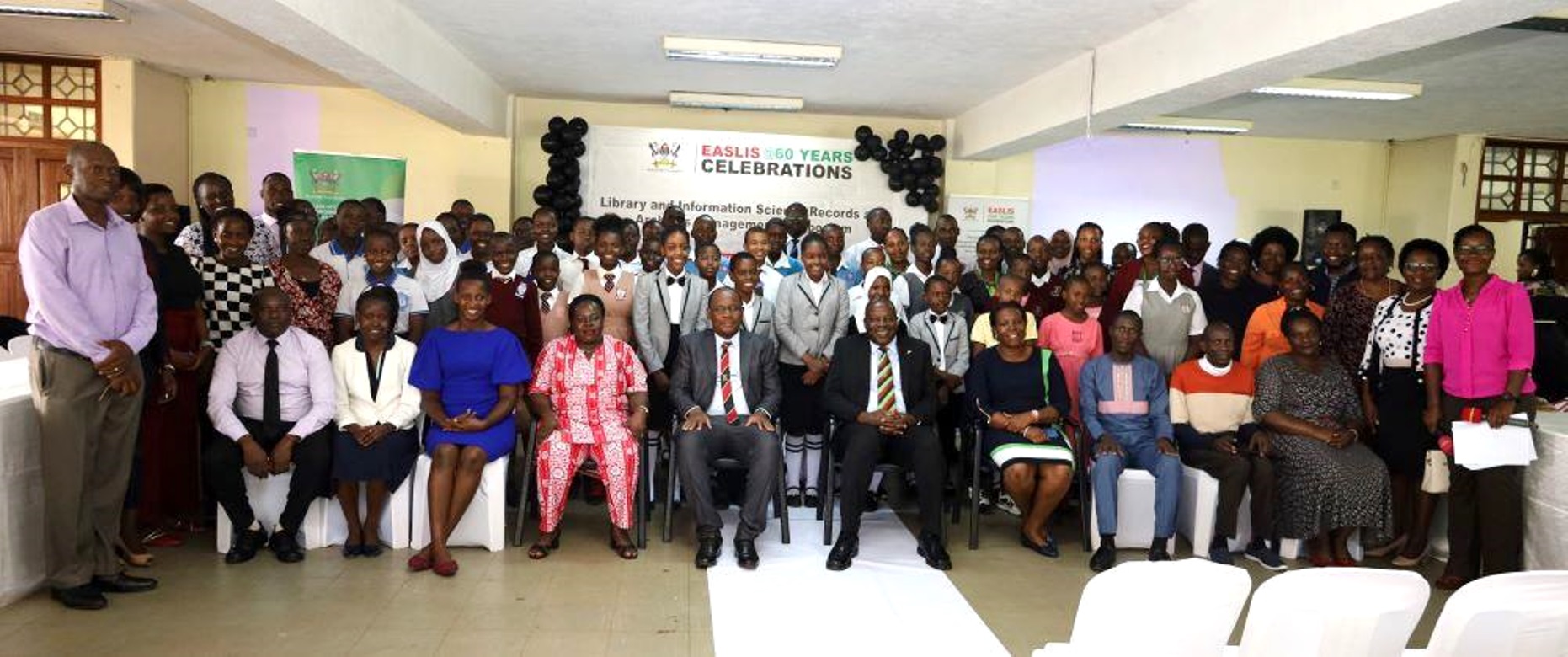
Celebrations to mark 60 years of service for the East African School of Library and Information Science (EASLIS) were officially opened on 9th November 2023 with a call on Information scientists to change their mind set and embrace the digital technology in order to contribute to the national transformational agenda and improve livelihoods.
The School celebrated its 60 Years of teaching, research and innovation in the field of Library, Records, Archival and Information Sciences from Wednesday 8th – Friday 10th November, 2023. As part of the celebrations, EASLIS organized primary and secondary schools quizzes and tertiary institutions talk show on 8th November 2023. The quiz for Primary schools focused on importance of school libraries and solicited proposals on how they can be improve.
The tertiary talk shows attracted university students from Mbarara, Makerere, Kabale, Kyambogo and other universities who discussed the role of information scientists , challenges and how they can be addressed. Students were also asked what role information scientists can play to guide government in the proper management of projects such as oil and gas, national identity card replacement, registration of digital car number plates, managing the upcoming elections 2026. Students made a number of proposals for government to address challenges affecting library and information scientists.
These include:
- Introduction of electronic documents management software to move away from paperwork.
- Supporting national, district and libraries in the new cities.
- Come up with a disaster preparation plan for records and archives in institutions
- Provision of information materials
- Revamping, standardizing national libraries and provision of better housing and allocation of sufficient resources
- Lobby support from organizations
- Encourage partnerships to help in capacity building
- Support Community libraries to promote intellectualism
- Revise National library act and other policies to match the current trends
- Offer scholarship and bursaries to information scientists
- Equate salaries of information scientist with other professions
- Register information scientists and offer certificates to operate
- Remove taxes on information materials
- Support the consortium of libraries etc.
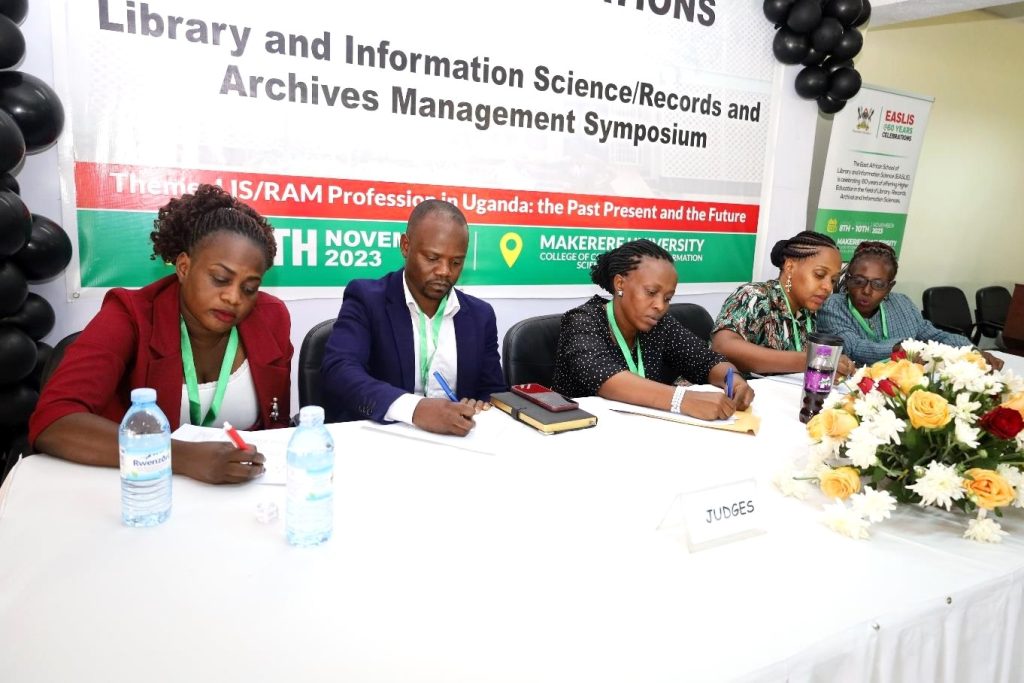
The celebrations were crowned by a Luncheon on Friday 10th November, 2023.
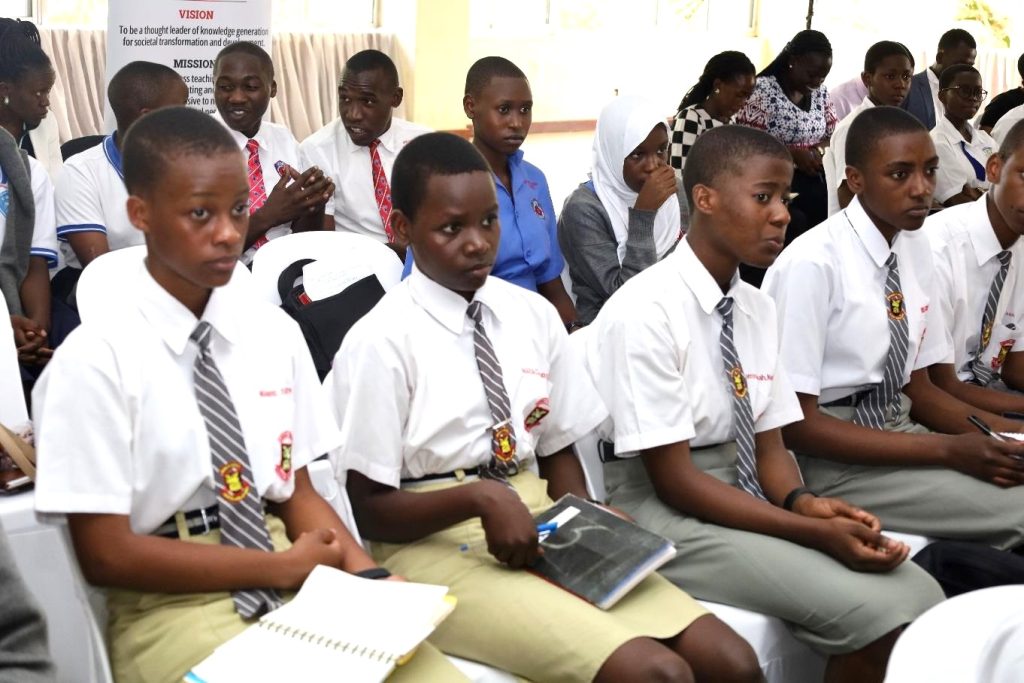
The Official Opening
While officially opening the three day celebrations on 9th November 2023, the Minister for Public Service Hon. Muruli Mukasa acknowledged that world over; records facilitate the operations of Government and other organizations, preserve the documented heritage of a nation and support accountability, transparency and good governance.
Due to their critical importance across the Service, the minister pledged government commitment to address the challenges in managing Library and Information Centers in the country including professionalization and infrastructural development.
“Libraries and Information centres remain critical pillars for national transformation and development. They are not just buildings filled with books; they are dynamic institutions that empower our citizens with knowledge, encourage innovation, and foster a sense of community”, Hon. Muruli stated.
The minister emphasized the critical role of libraries and information centres as silent engines that power a nation’s progress, and significantly contribute to the continued development of the knowledge base of people, communities, society, education sector, the overall economy and national development.
Besides being repositories of knowledge and information, the minister said libraries and information centres serve as the intellectual hubs where people of all ages and backgrounds can access a wealth of resources, from books to digital media, in pursuit of knowledge and self-improvement.
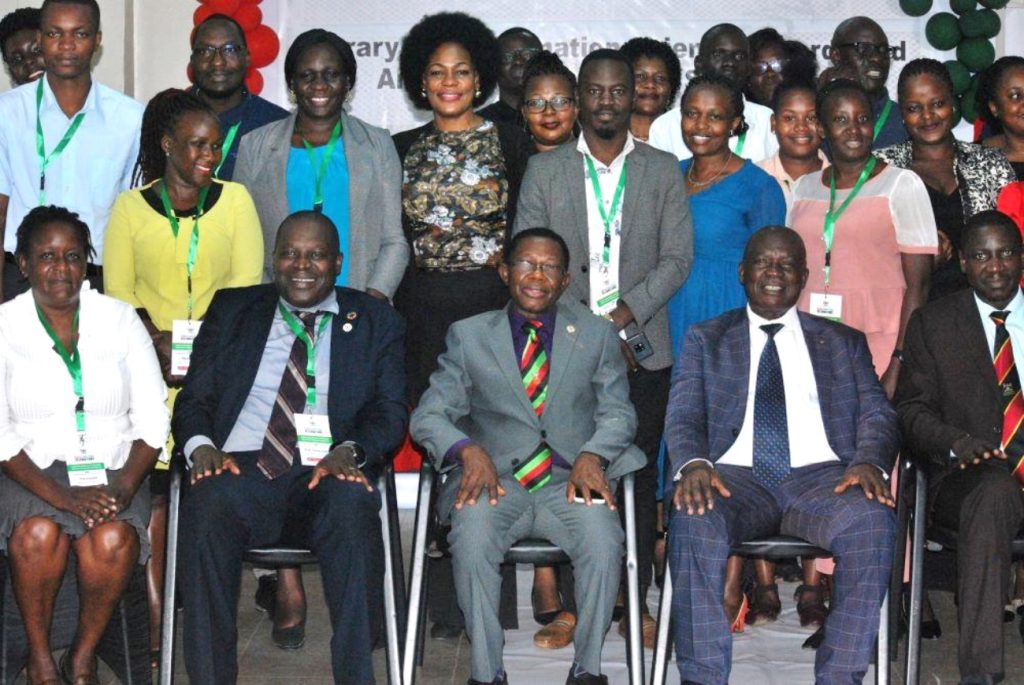
Libraries and information centres according to the minister, are not merely book depositories; they are dynamic, evolving institutions that need to be properly management in all aspects in order to play their critical role in transforming societies and nations since on a daily there are changing and competing knowledge needs across all societies.
In that regard , Hon. Muruli emphasized that, libraries and information centres are the bedrock in the Education sector across all nations as they continue to provide students with essential learning resources, making education accessible to all, regardless of socio-economic status.
From textbooks to research materials, Hon Muruli stressed that libraries and information centres empower future leaders with the tools they need to inform the countries policy and development agendas.
“Similarly, a nation’s progress relies heavily on research and innovation and therefore, libraries and information centres are invaluable in supporting this endeavour by offering access to academic journals, databases, and research materials, which fuel innovation, scientific discovery, and technological advancement.
It is also important to note that libraries and information centres are champions of literacy, fostering a reading culture and encouraging lifelong learning. By offering reading programs and resources for people of all ages, libraries and information centres contribute to a more knowledgeable and informed citizenry. Back in the day, there were public Libraries that provide the required reading environment and materials across the country”. He explained.
On the side of cultural preservation, the minister highlighted that every countries cultural heritage is preserved within the walls of libraries and information centres. They house historical documents, records, and rare manuscripts, ensuring that the history and traditions of our nation are not forgotten. The materials therein continue to be reference points for cultural preservation.
Concerning community awareness, the minister explained that libraries and information centres serve as community resource centres, promoting social cohesion and civic engagement. They offer a space for community events, discussions, and activities that strengthen the bonds among our citizens.
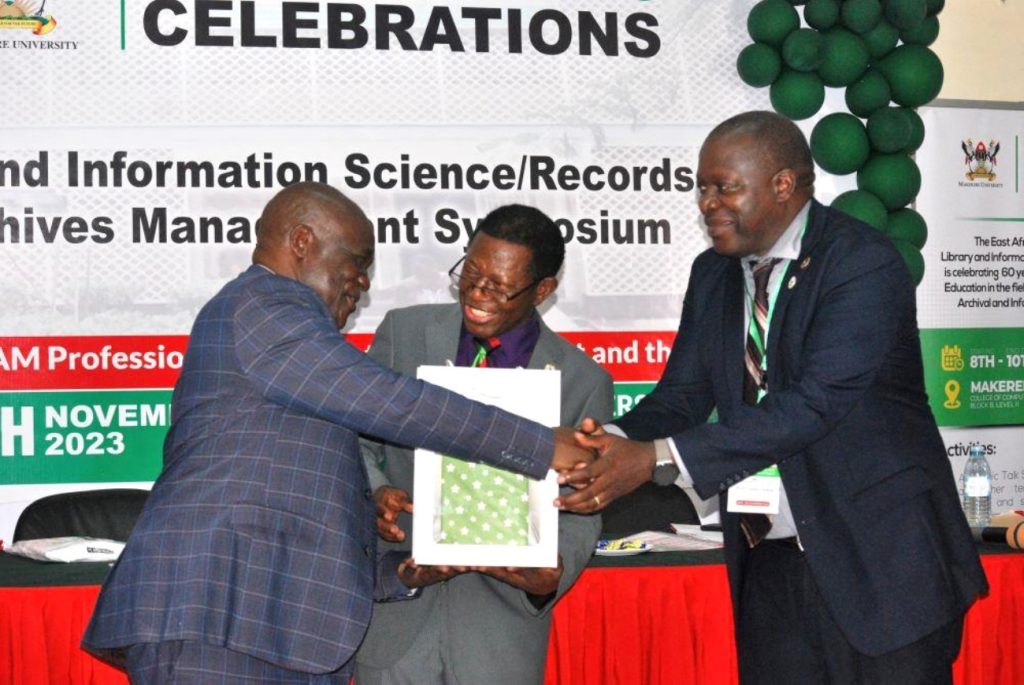
In regard to the increasing digital transformation, Hon. Muruli asserted that libraries and information centres have been instrumental in fostering digital inclusion by bridging the digital by way of providing internet access and computer facilities to the less privileged, enabling all citizens to access online information and services, fostering a more inclusive society.
The minister further highlighted the importance of libraries and information centres, in supporting economic growth and development. They continue to be avenues for facilitating entrepreneurship and small business development as they equip prospective entrepreneurs with knowledge and skills that can help them establish and grow their businesses.
In regard to health and wellness, Hon Muruli said libraries and information centres provide critical health information, promoting public health and wellness. They act as information resource centres on healthcare, disease prevention, and healthy living, contributing to the overall well-being of citizens.
The minister added that in the wake of climate change and its impact on the Globe, environmental libraries and information centres can contribute to environmental sustainability by providing information on environment and ecological issues, conservation, and sustainable practices, promoting a more environmentally responsible society.
“The role of libraries and information centres on the media landscape is arguably immense as they provide avenues for equipping citizens with the skills to evaluate, use, and share information responsibly, a vital skill in our edge of information overload especially in the Digital spaces”. He emphasized.
Despite the pivotal role in promoting literacy, education, and community development, the minister observed that libraries and information centres worldwide are facing a crisis that threatens their very existence, including but not limited to;-.underfunding, outdated resources, limited access to technology, inadequate staffing, declining usage, mind-set change; as majority of the officers in the entities sampled are still using manual processes and are slow to adopt digital systems.
Other challenges according to the minister include the dysfunctional records management system that continue to be an impediment to better library and information management in most entities as the manual systems require to be streamlined prior to digitization, lack of complementary equipment like computers and scanners to drive the digitization of the records management processes, the continued digital skills gaps due to general lack of knowledge and skills in the use and adoption of ICTs by the records staff and users among others.
The minister explained that the current status quo concerning records and information management across the service, should now be related to the historical importance of the East African School of Library and Information Science, which has been a beacon of knowledge, a catalyst for progress, and a cradle of talent.
“The East African School of Library and Information Science nurtured generations of professionals, for whom we are all-proud of and have immensely played pivotal roles in preserving and disseminating knowledge. It has also greatly contributed to the growth and development of the information management regime at this University, the country, and the greater region of East Africa and Africa as a whole.
60 years of service before and during the technological edge is not just a celebration but also a big milestone for the school. This commemoration should therefore enable us reflect on school’s unwavering commitment to the values of education, research, and community service. It has fostered an environment where innovation thrives, where intellectual curiosity is encouraged, and where a sense of unity and purpose prevails”, the Minister said.
As the school commemorates 60 years, the minister challenged participants to reflect on where they have come from, the achievements registered, the challenges faced together, shared and overcome in steering the agenda for Library and Information Science in Uganda.
This day according to Hon. Muruli should be used to look into the future of library and information management as a whole considering the changing landscape because of the changing current digital edge influenced by technology.
“The East African School of Library and Information Science is not just a repository of knowledge; it is a bridge to the future and the future is now. In focusing the future of Library and Information Science, we should embrace new ways of doing things.
The advancements in information science and technology present new challenges and opportunities, and I believe management of the school is well prepared to lead the way and the School properly equipped to provide better services to the students and the clients that visits the school in search for new knowledge”, he implored.
No standard documents and records management system
The minister observed that no attempts have previously been taken to implement a standard documents and records management system across all Government institutions. Currently, the minister said the documents and records management functions are largely manual in most Government Institutions. The automation of documents and records management initiatives contribute to the Public Sector Transformation Programme under objective 5 of the third National Development Plan (NDP III).
“The records management function is the fulcrum of the Public Sector Transformation and therefore this requires a Public Service that is efficient, effective, transparent and responsive to the needs of the people driven by efficient records management”
The Policy Paper on the Transformation of the Public Service as stated by the minister identifies structures, processes and systems as one of the pillars of service delivery. Therefore, the EDRMS Project intends to address service delivery bottlenecks associated with Records and Information Management systems in the Public Service considering its central role in service delivery.
It is envisaged that the digitization of records in MDAs and LGs will result in more flexible and rapid access to information for quick decision making and the eventual improved services to the citizens. It will also save on storage costs, space, equipment and time taken to retrieve records in MDAs and LGs. This will promote transparency, good governance and accountability.
The EDRMS system the minister reported has since been piloted, deployed and is working well in two Ministries: The Ministry Public Service, since November 2021; the Ministry of ICT and National Guidance since January 2022. In the second phase of the deployment process, the Ministry of Trade, Industry and Cooperatives (MoTIC) and Uganda Retirement Benefits Regulatory Authority (URBRA) were on boarded in January 2023. Currently, the EDRMS is running in four (04) entities.
Government pledge support to professionalization of the library carder and infrastructure
Despite the many challenges, the minister said, Libraries and Information Centers are not a luxury; they are a fundamental necessity for education, research, and community development.
The Minister pledged Government’s readiness and commitment to address the challenges in managing Library and Information Centres in the country due to their critical importance across the Service.
“I therefore wish to request the Library fraternity to remain steadfast in the changing information access landscape in order to keep a braced with the new developments and counter the current challenges as herein enumerated.
I therefore implore you all to remain professionals in you line of due and serve the people that require your services diligently. Professionalism is one of the virtues for the 21st managers that will facilitate rapid economic transformation of our country.”
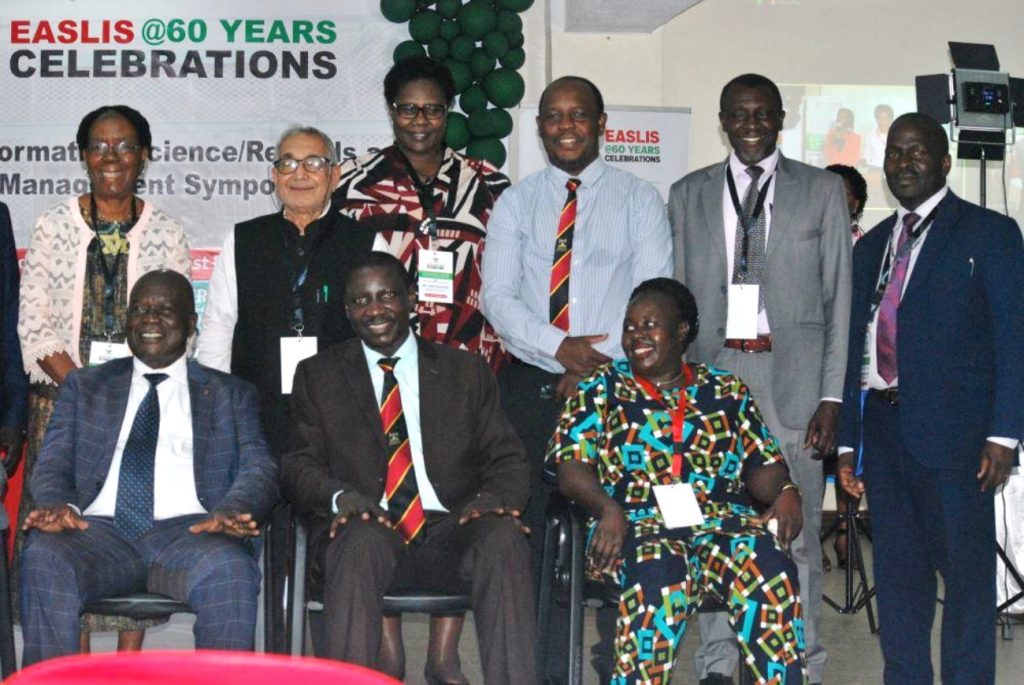
Government of Uganda through the Ministry of Public Service he said, continues to be supportive in walking the talk of professionalizing the library cadre across the service, including librarianship. This has led to the development of standardized curricula, accreditation processes, and recognition of the importance of well-trained library and information professionals.
Government according to the minister is also committed to ensuring that the required infrastructure is in place to support Library and Information Management noting that the expansion of the National back born fiber has greatly impacted on the information landscape in the country and facilitated Digital Literacy, in the country and access to information. This aligns with the evolving field of Library and Information Science, which increasingly involves managing digital resources and technology.
“Government will therefore make every effort and other actors to support continued Community Engagement by providing the much-needed information services to citizens in various regions of Uganda in shaping the landscape of Library and Information Science in the country.
Moving forward, it is essential that we continue to support and strengthen Library and Information Science training to ensure that our Libraries, Information Centres, and information services remain vibrant, relevant, and accessible to all Ugandans.”, he pledged.
In pursuit of the aforementioned role, the Ministry of Public Service he said, is championing the strengthening of the Records and Information Management function by fully automating the records management processes to promote proper management and utilisation of records at all levels by every stakeholder across Ministries, Departments, Agencies and Local Governments (MDAs/LGs) including Makerere University that hosts the East African School of Library and Information Science (EASLIS).
Over the years, the Ministry of Public Service has engaged the Ministry of Information and Communication Technology and National Guidance to provide an integrated Electronic Document and Records Management System (EDRMS) solution.
EDRMS (eDocs+) has been developed with requisite modules to facilitate records/document creation, usage, search and retrieval, storage, processing and maintenance, transfer and disposal throughout the active, semi active and inactive records lifecycle in the new digital agenda.
Hon Mukasa reported that through digitization of the end-to-end business processes relating to Records and Information Management, the system enables MDAs and LGs to proactively and effectively execute their respective core mandates and functions through timely and informed decision-making.
The Minister noted that the advent of Information and Communication Technology (ICT) has fundamentally changed records management landscape world over. As a result, he said, Electronic records came onto the scene when Uganda embraced ICT as part of its economic development strategy in the mid-1990s. The significant reforms to embrace ICTs include the establishment of a fully-fledged Ministry of Information and Communication Technology in 2006, which led the development of the National ICT Policy, e-Government Master Plan, and the Cyber Laws.
Other developments highlighted include the establishment of the National Information Technology Authority-Uganda (NITA-U) as an Information Technology regulator. Overtime, many Government institutions have taken on computerization projects. Examples include; i) the Integrated Financial Management System (IFMS) by the Ministry of Finance Planning and Economic Development (MoFPED); ii) the Local Governments Information Communication System (LoGICS) by the Ministry of Local Government; iii) the Electronic Tax System (e-Tax) by Uganda Revenue Authority; among others.
Information scientists must embrace the new technologies to transform the management of information and data – Mak VC
The Vice Chancellor represented by the Academic Registrar Prof. Mukadasi Buyinza, said celebrating 60 years comes with a lot of viable lessons.
Prof. Buyinza said the office of the Vice Chancellor partners with EASLIS to celebrate its joy as part of the proud history and promising future.
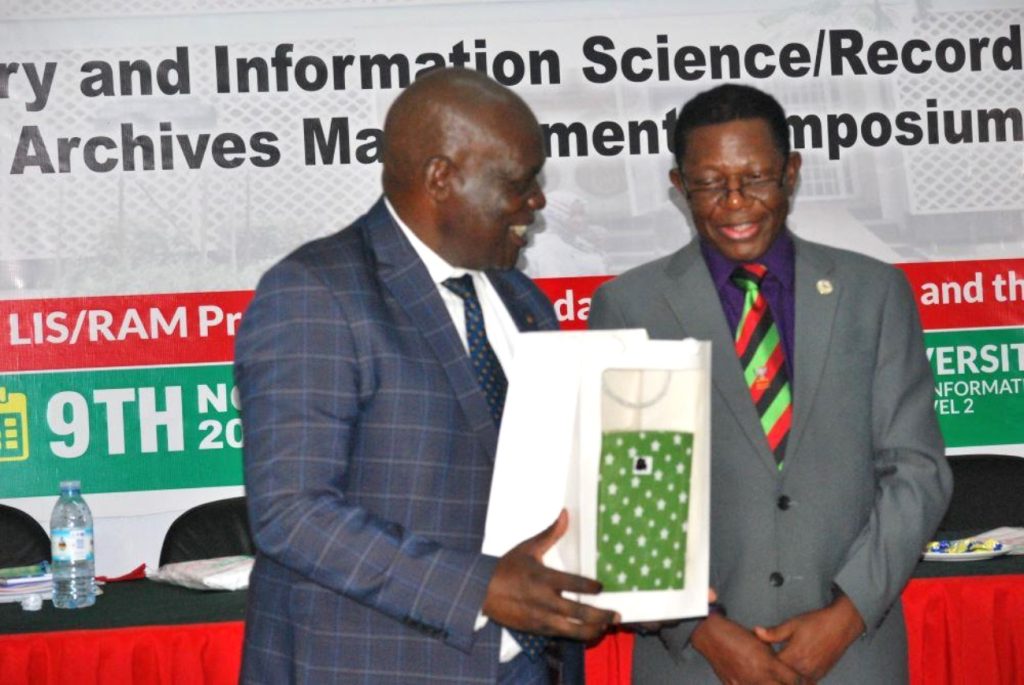
“As an academic institution our tool of trade is teaching, learning and research and community outreach but our currency is information. The oxygen and life-blood of the knowledge economy is data, information and records management. And being the custodians of these valuable assets means you are determined to the speed and agenda of our development”. Buyinza said.
Buyinza implored information scientists to embrace the new technologies to transform the management of information and data.
“We are going through the information revolution. Digital libraries and web mediated technologies have come on board but the goal is the same, to transform society. This is your time to shape our destiny as a country and as a humanity. Do not lose the moment” the professor advised.
EASLIS has shaped the Library and Information Science Industry in Uganda, DVCAA
In an overview of the school’s history, the Deputy Vice Chancellor in charge Academic Affairs represented by the Director Quality Assurance Dr. Cyprian Misinde expressed pride in the schools contribution in obtaining some required documentation to trace the university history, undertaking research in various fields with output reflected in international databases.
He said EASLIS research and professional training has shaped the Library and Information Science industry in Uganda, the region and internationally. At the national level, the DCVAA pointed out the development of the public library system, the national library in Uganda, and the school library policy.
The school was also hailed for the establishment of Information Resources Centres and professionalization of records and Archives management in Government Ministries, Departments and Agencies, private sector agencies and civil society organizations.
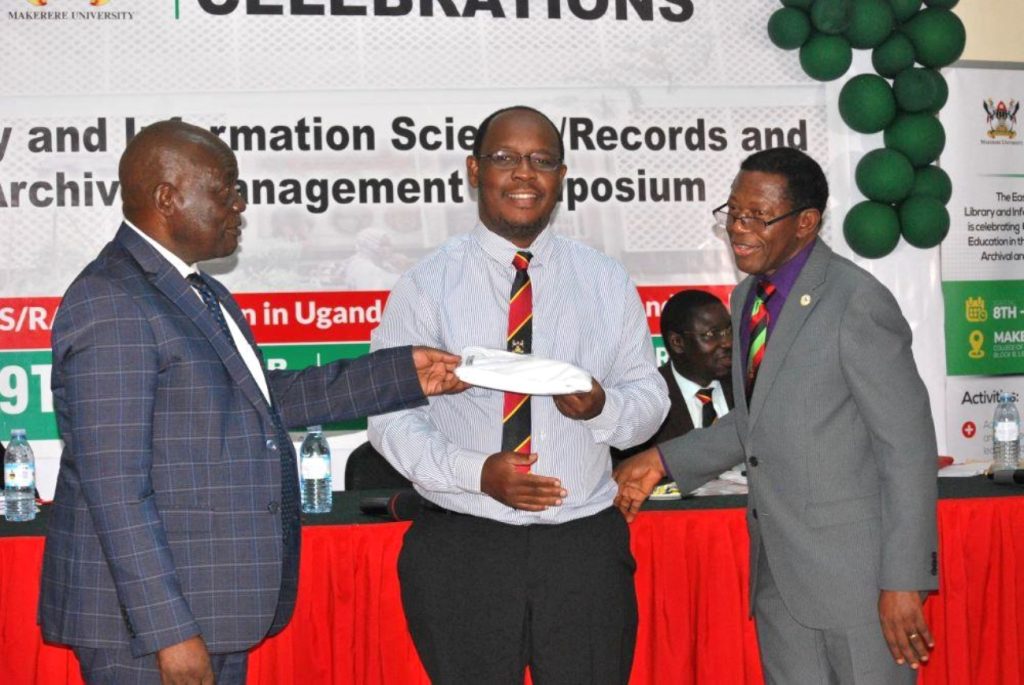
The DVCAA appreciated the school for the development and growth of the publishing sector, enactment of relevant legislation, institutional records and archives policies, development of the museum industry and academic libraries as well as the automation of library, records and archives management functions and digitization of institutional records at various levels.
“Notably, EASLIS has contributed significantly to the digitization of academic records at Makerere University and streamlining storage access to academic records under the DARP project that is being implemented under the department of the Academic Registrar”, Dr. Misinde stated.
The DVCAA recognized various stakeholders and development partners for supporting the school. These include UNESCO, Swedish school of Library and Information Sciences, Bras university, National Library of Uganda and the Uganda Library and information Association among others.
The DVC AA recognized the invaluable contribution of the school leadership since its founding. These include Mr. Knud Larsen the first Director of EASLIS (1963-1966), Mr. Seith Director (1967-1971), Prof. SAH Abidi (1972-2002), Prof. Isaac Milton Namwanje Kigongo –Bukenya RIP (2002-2006), Prof. Elisam Magara (2006-2010), Prof. Constant Okello-Obura (2010-2014 and 2018-2022), Dr. George W. Kiyingi (2013-2018) and the current first female Dean Dr. Sarah Kaddu.
EASLIS has significantly contributed to knowledge, Principal CoCIS
The Principal College of Computing and Information Sciences Prof. Tonny Oyana appreciated participants for participating in the celebrations of EASLIS at 60 saying, the school is among the elders close to the university centenary celebrations.
Prof. Oyana thanked the school leadership for organizing the celebrations for purposes of reflecting noting, it was important to take stock after walking a journey to determine how to reach the final destination.
The Principal honored EASLIS for her significant contribution to knowledge.
“As a scholar, the work that has impacted a lot in term of publications that are out there lies in the information seeking behavior. And, among the giants is Prof. Robert Ikoja Odong who has 180 citations. When you go to the web of science, there are other others who have published a lot like over 500 citations”, Oyana appreciated.
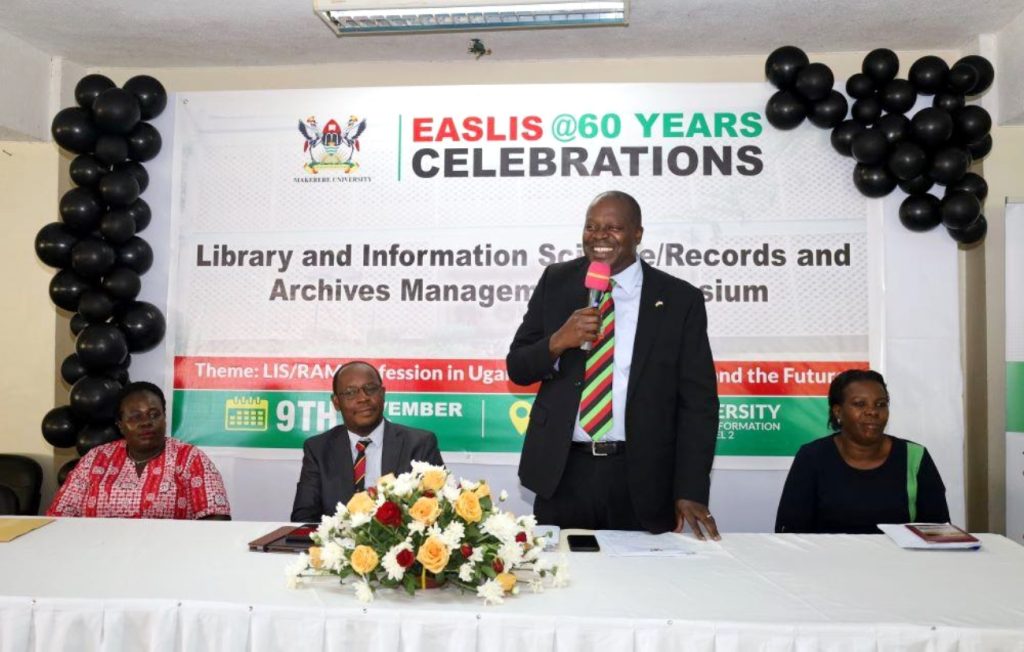
Prof. Oyana said the basic function of the library is to enable people seek information and data in different areas including agriculture, health, finance, economy and legal aspects among others, giving humans an empowering that enable them achieve their goals.
Noting that information can accessed digitally, the professor urged participants to utilize gadgets such as mobile phones for economic productivity to enhance their livelihoods.
The Principal also recognized librarians for satisfying people’s needs for information.
Celebrations as a platform for collaboration and a catalyst for progress in library and information services – Dean EASLIS
The Dean EASLIS Dr. Sarah Kaddu, said the gathering was purposed to delve into the crucial realms of library and information services as well as the significance of records management in society.
“The symposium stands as a testimony to the enduring commitment of this institution and its stakeholders towards the advancement of knowledge, information accessibility and preservation of our collective memory”, she said.
Expressing gratitude to the academics, practitioners, students and enthusiasts and library lovers for gracing the occasion, Dr. Kaddu explained that the symposium was a platform for vibrant discussions, sharing insights and fostering collaborations.
“This symposium comes at a time when EASLIS is celebrating her 60th anniversary. We at EASLIS stand on the shoulders of those that came before us. We celebrate those who have gone through EASLIS and especially you who have come to celebrate with us”, the Dean appreciated.
The Dean re-echoed the importance of libraries, information services and records management saying, the symposium serves as a witness to the university’s commitment to continually improve and adapt to the evolving landscape of information management and records preservation.
“Let us embrace this symposium as a beacon of knowledge, a platform for collaboration and a catalyst for progress in library and information services as well as records management. Together, let us strive to enhance our understanding, practices and methodologies, fostering a culture of effective information management and preservation”, Dr. Kaddu implored.
The Dean further implored information scientists to embrace technology in transforming how they manage information and records on grounds that the digital age has come with both opportunities and challenges requiring them to constantly evolve their methods and strategies in handling information and records in both traditional and digital formats.
You may like
-


Mak 76th Graduation Ceremony: CoNAS Presents 16 PhDs & Best Performing Male Student in the Sciences
-


Medical graduates urged to uphold Ethical values
-


CAES Presents Overall Best Performing Student in the Sciences & a Record 28 PhDs at the 76th Graduation Ceremony
-


Graduation marks the next phase of accountability, graduates told
-


Over 9,200 to graduate at Makerere University’s 76th Graduation
-


Philliph Acaye and the Making of Uganda’s Environmental Health Workforce
Computing & IS
Makerere Launches Scholarly Guide, Calls for Increased Research, Publication and Innovation in Africa
Published
2 weeks agoon
February 12, 2026By
Jane Anyango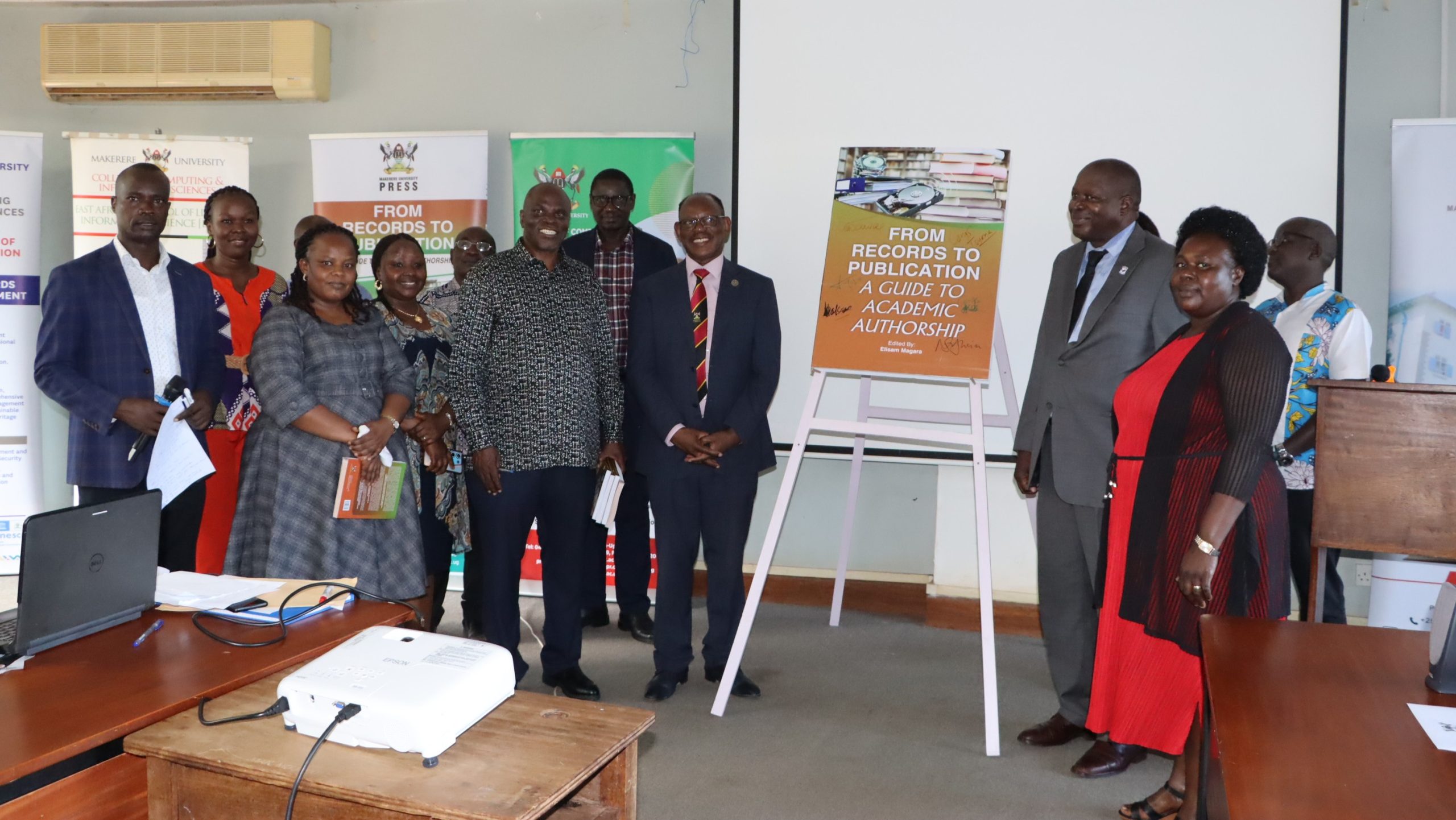
VC Emphasizes Research as Key to Africa’s Global Integration
Makerere University Vice Chancellor, Prof. Barnabas Nawangwe, has urged universities across Africa to invest in research, publication, and innovation as a pathway to greater participation in the global knowledge economy.
Speaking at the launch of From Records to Publication: A Guide to Academic Authorship, edited by Prof. Elisam Magara of the East African School of Library and Information Sciences, Prof. Nawangwe highlighted Africa’s low contribution to global scholarship. “Although Africa accounts for 15 percent of the world’s population, it produces only 3 percent of global research publications,” he said.
“There are historical reasons for this,” the Vice Chancellor continued, referencing centuries of slavery and colonialism. “You cannot brush away 600 years of subjugation. And we Africans have not even written enough about that. If we want to move Africa back into the global community, we must invest in research, publication, and innovation.”
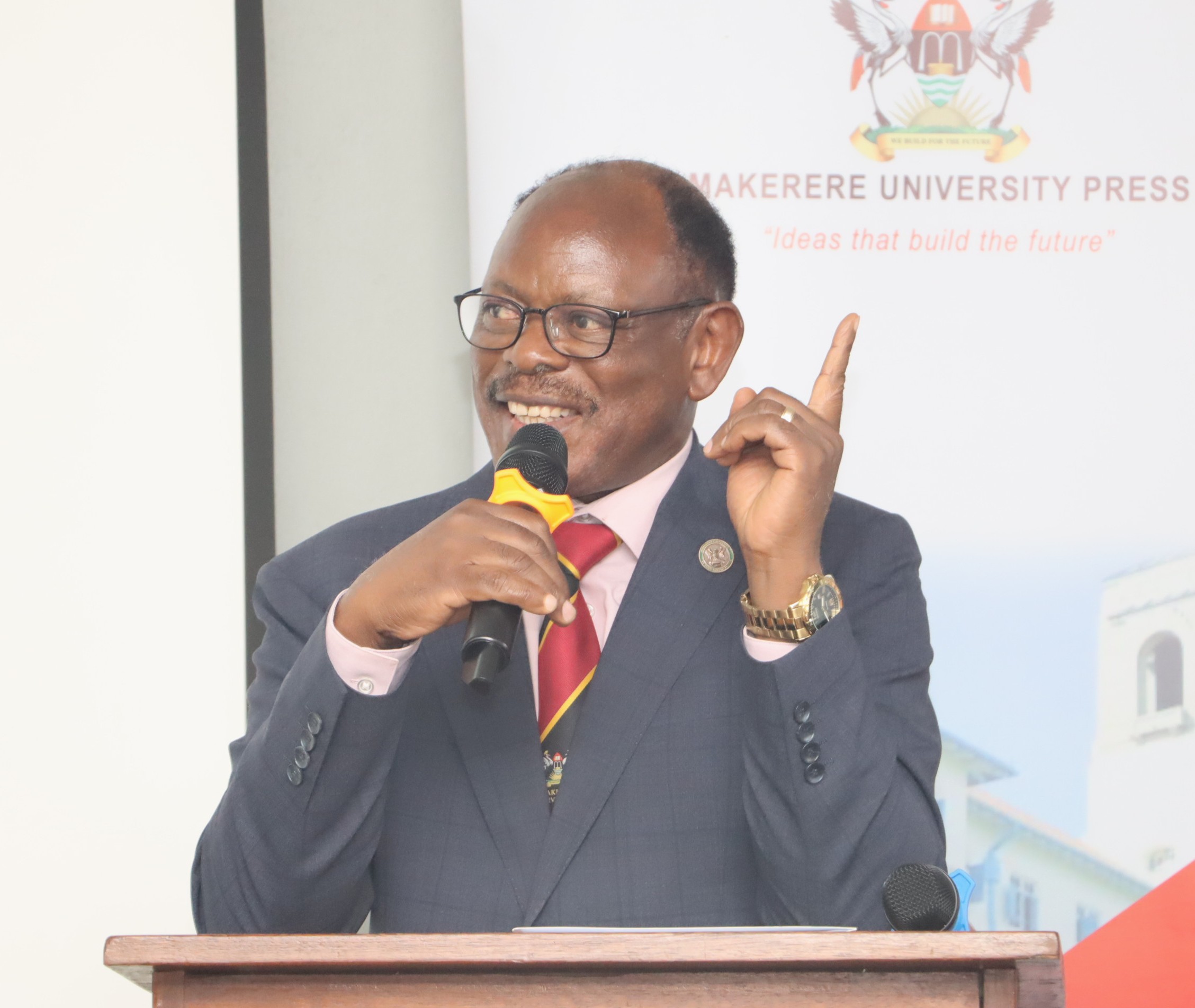
He cited China as an example, noting how the country’s investment in research and education has translated into economic and global influence. “When we say China is the factor of the world, it is not that people just wake up and begin making things. They invest in education, in publication, in research. If we want to transform Africa, we must do the same.”
Prof. Nawangwe highlighted Makerere’s progress, revealing that annual peer-reviewed publications have grown from about 500 a decade ago, to 700, and now exceed 2,000. He acknowledged that the university still trails South African institutions, partly because they operate numerous local journals that absorb significant volumes of research. “We are not fully utilising the brand of Makerere University Press,” he said, pledging support to strengthen the press and scale up journal production.
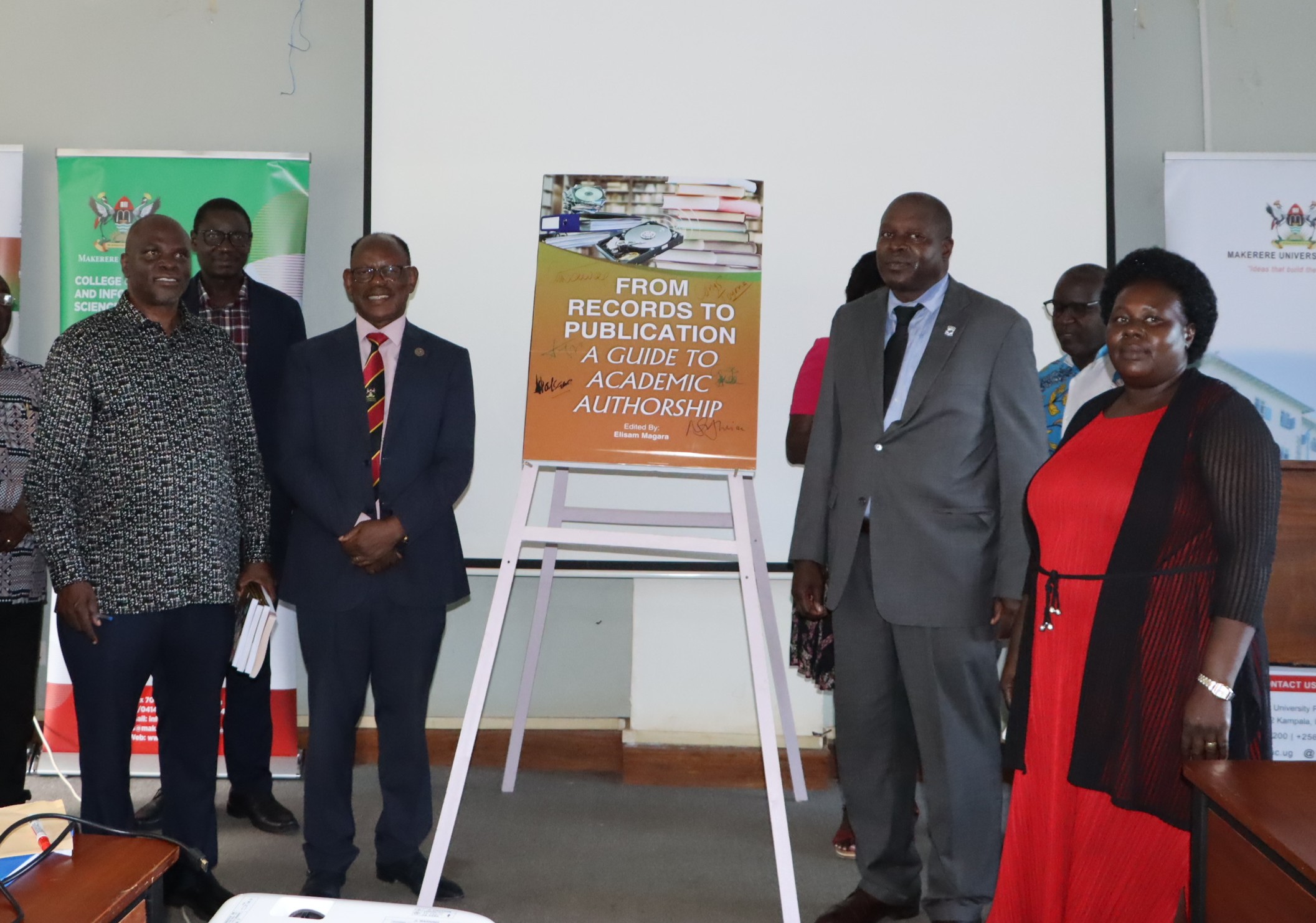
He also reaffirmed the university’s strategy to reduce excessive undergraduate enrolment and expand graduate training to boost research output. “Let us create time for professors to do research and supervise more graduate students,” he said.
Commending Professor Magara and his team for producing the authorship guide, Prof. Nawangwe described the book as an essential handbook for Master’s and PhD students, early-career researchers, and universities across the region striving to become research-led. “This is at the heart of the university. If we invest in research and publication, we secure our future,” he said.
Book Recommended as Mandatory Guide by College Principal
Makerere University’s Principal of the College of Computing and Information Sciences, Prof. Tonny Oyana, called for the newly launched volume to be adopted as a mandatory guide for graduate students and newly appointed lecturers. “This is not a bad book for our first-year PhD students to start with,” he said. “Even those who are hired as junior lecturers still need mentorship. If I were the Vice Chancellor, I would put this book as required reading for every new hire.”
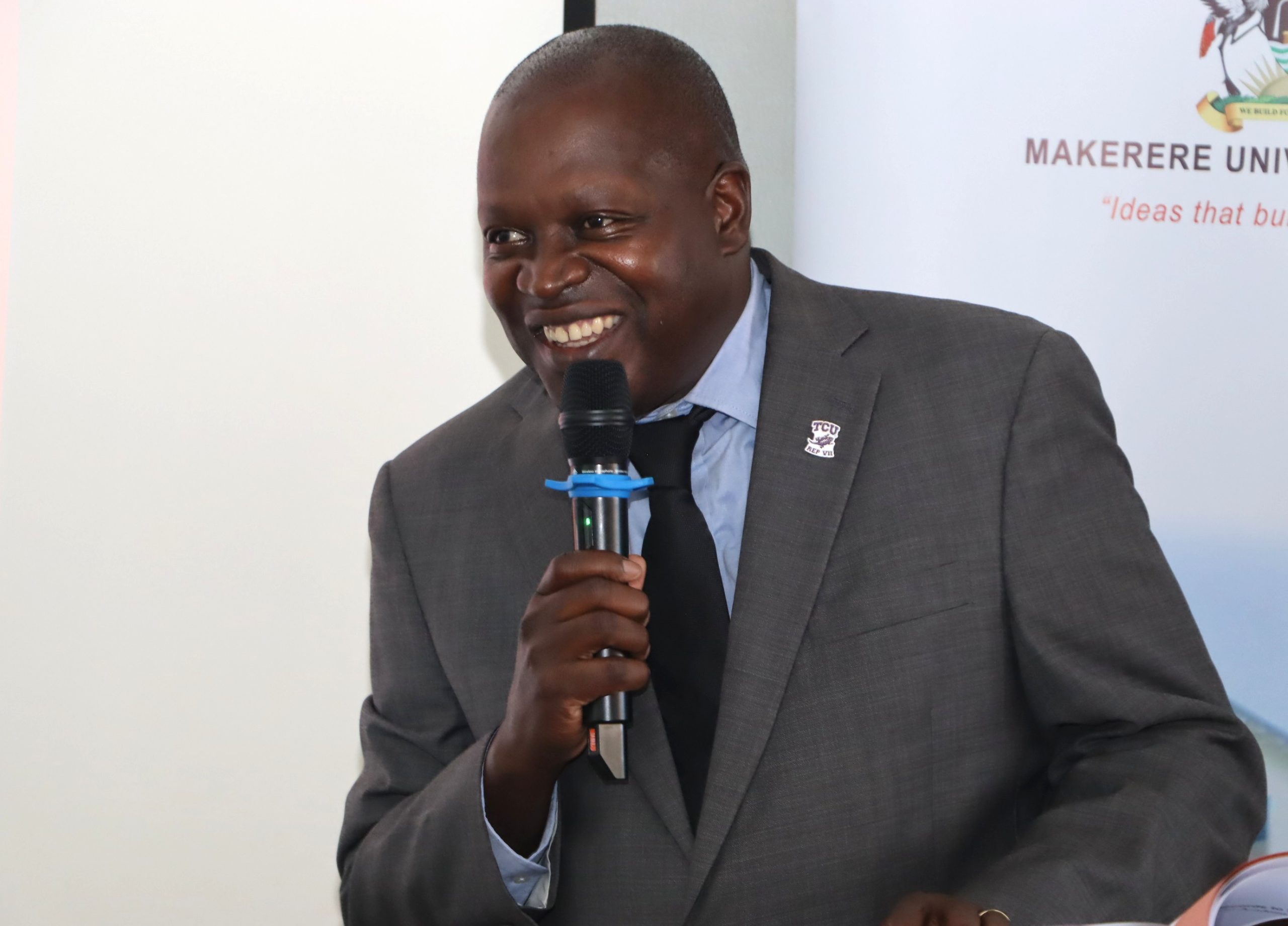
Prof. Oyana reflected on his personal contribution to the book, revealing that administrative responsibilities nearly forced him to withdraw. “Because of the work that I do, I was about to give up,” he admitted. “But Professor Magara was persistent. He came back to me and gave me more time.”
He credited a PhD student, Caroline Ilako, for assisting with library research and literature reviews, saying, “She did a wonderful job. We went back and forth through revisions, but finally we produced the work.”
On the quality of the book, Prof. Oyana said, “When you pick up a book, look at how it is laid out. The quick judgment tells you about the quality. This is well put together. We are beginning to show quality comparable to Western presses.”
He also challenged traditional notions of “publish or perish,” noting, “As scholarship evolves, those who evaluate scholarship must also adjust. Impact, innovation, and tangible products are increasingly valued alongside journal articles.”
Editor Highlights Research-Based Approach
Prof. Elisam Magara, the book’s editor, explained that the guide is designed to support scholars from the moment they conceive a research idea to the point their work is published and read. “I looked at the books we were using and asked myself: which kind of book can truly guide students? We needed a clear guide from the time a scholar thinks of writing up to the time the book is read,” he said.
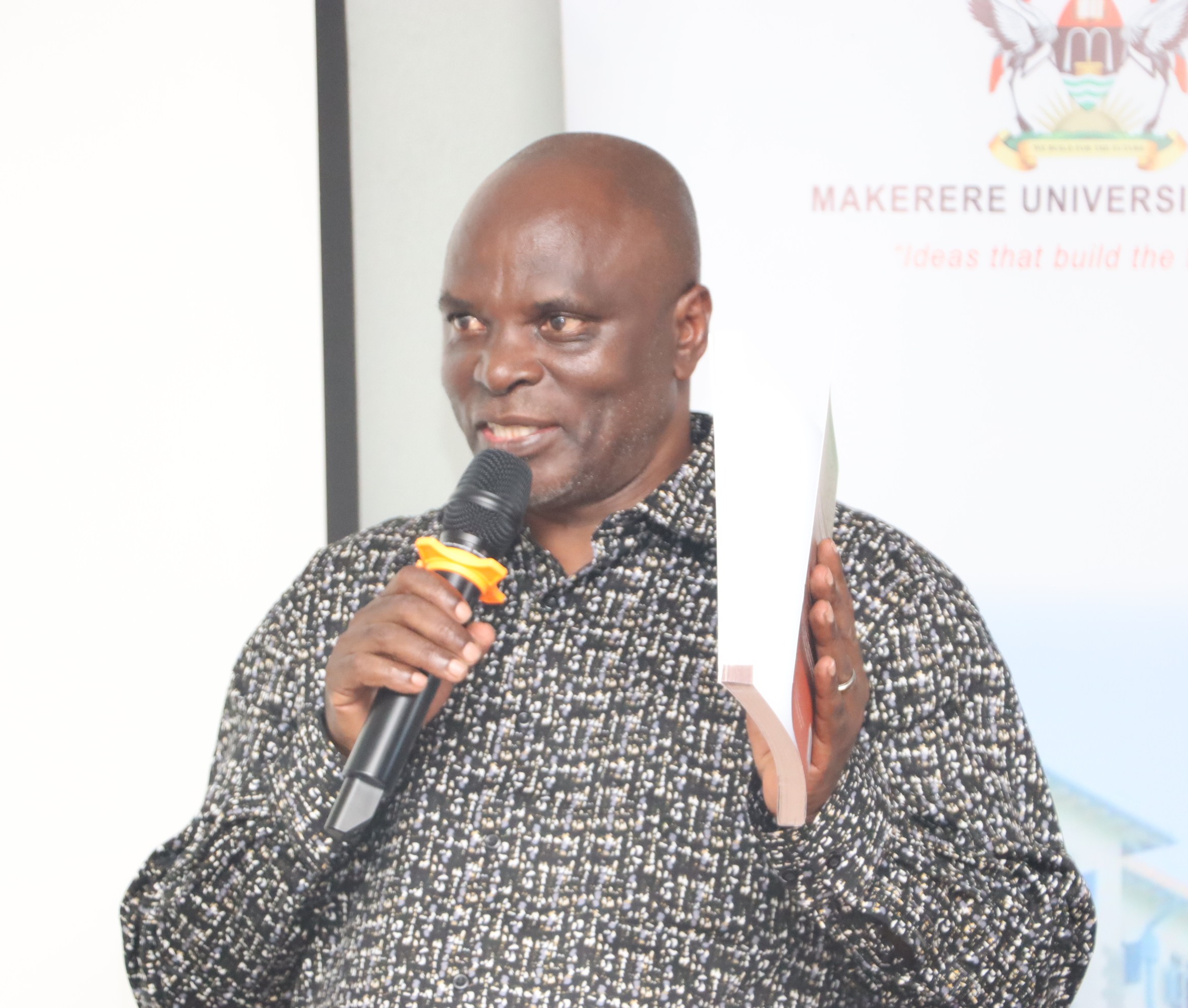
He detailed the rigorous editorial process that began in 2022, including international calls for contributions, peer review of abstracts, writeshops for feedback, and multiple rounds of chapter reviews. “Don’t write and keep,” he advised. “Your book must have impact. It must reach the public and be used.”
Prof. Magara also acknowledged the sabbatical granted by the Vice-Chancellor, which enabled him to balance teaching and editorial responsibilities. “This book is meant not just for Makerere but for scholars across the region and beyond,” he said.
Mak Press Outlines Rigorous Publishing Process
Dr. Isaac Tibasima, representing the Managing Director of Makerere University Press, explained the publication pathway. “Once you bring your manuscript to the press, we take it through evaluation, external peer review, revisions, copy-editing, typesetting, and pre-press review before printing,” he said.
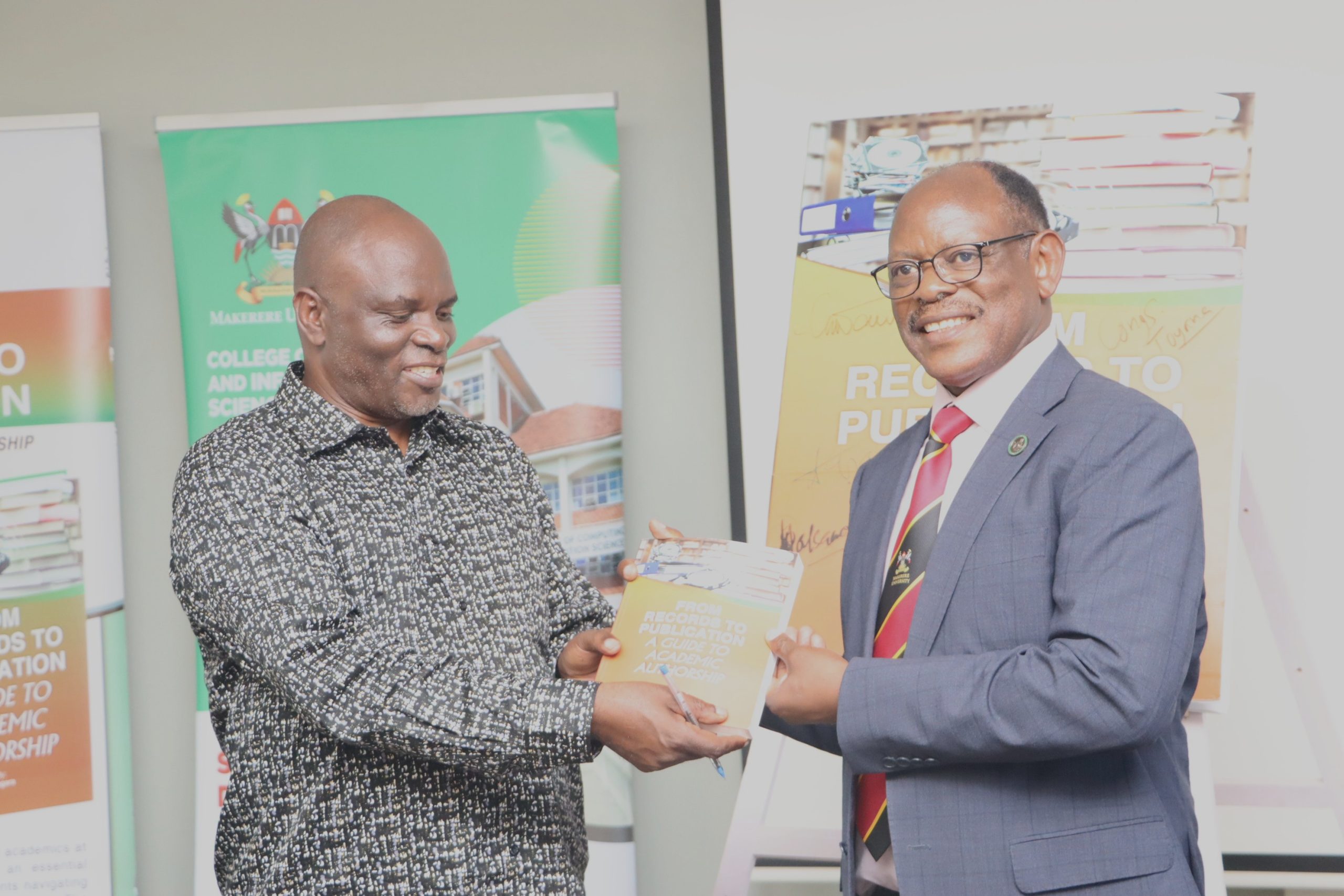
He also highlighted the press’s efforts to strengthen college-based journals. “We will not run the journals, but they will be published under the imprint of Makerere University. If we produce consistent issues, we can then move toward global indexing,” Dr. Tibasima said.
All new journals and articles now carry Digital Object Identifiers (DOIs) to enhance discoverability, while past publications are being retroactively assigned DOIs. “We are not there yet, but we are moving there, and we are intentional about getting there,” he added.
School Leaders Celebrate Scholarship and Mentorship
In welcome remarks, Dr. Sarah Kaddu, Dean of the School, said, “This event is a celebration of scholarship, intellectual discipline, and the journey of knowledge creation. This book speaks directly to one of the most critical challenges facing scholars—transforming research records into publishable work.”
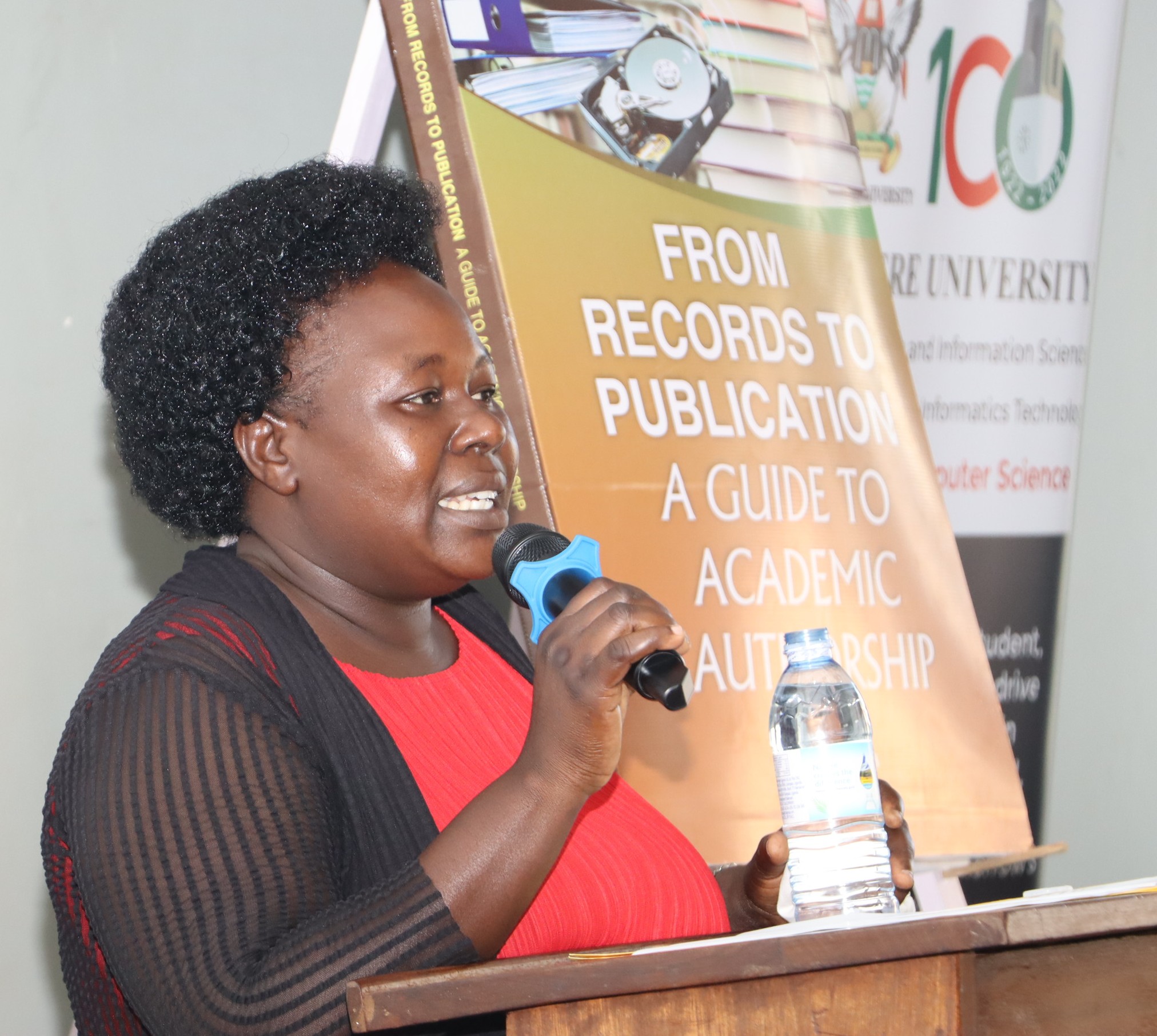
Dr. Sylvia Namujuzi, Head of the Department of Records and Archives Management, added, “This book is timely. It responds to real challenges faced by early-career researchers, postgraduate students, and even seasoned academics—questions of structure, authorship ethics, citation, collaboration, and navigating the publication ecosystem.”
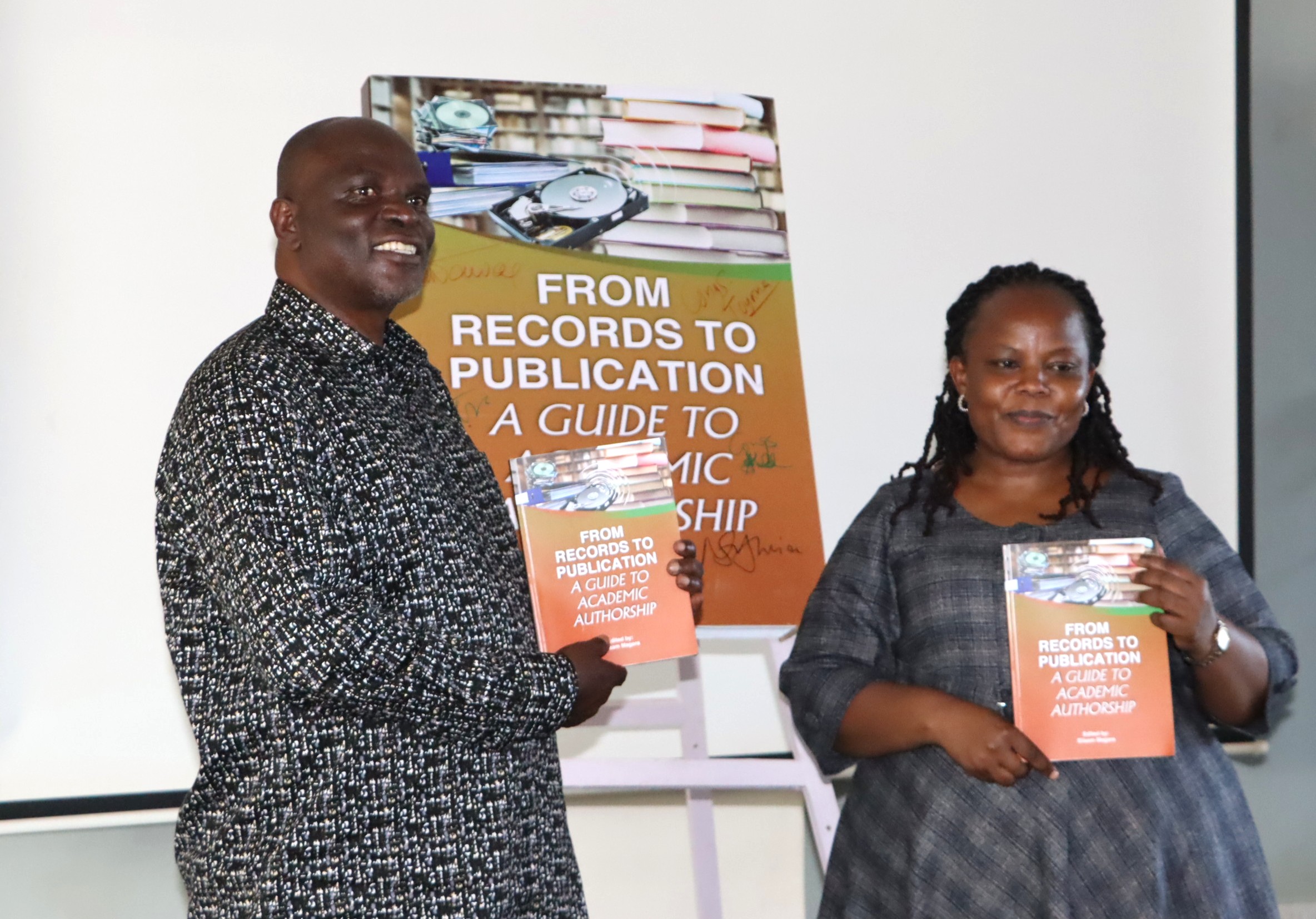
She concluded: “Well-managed records are not endpoints; they are the beginning of inquiry, reflection, and publication. This guide demonstrates that pathway.”
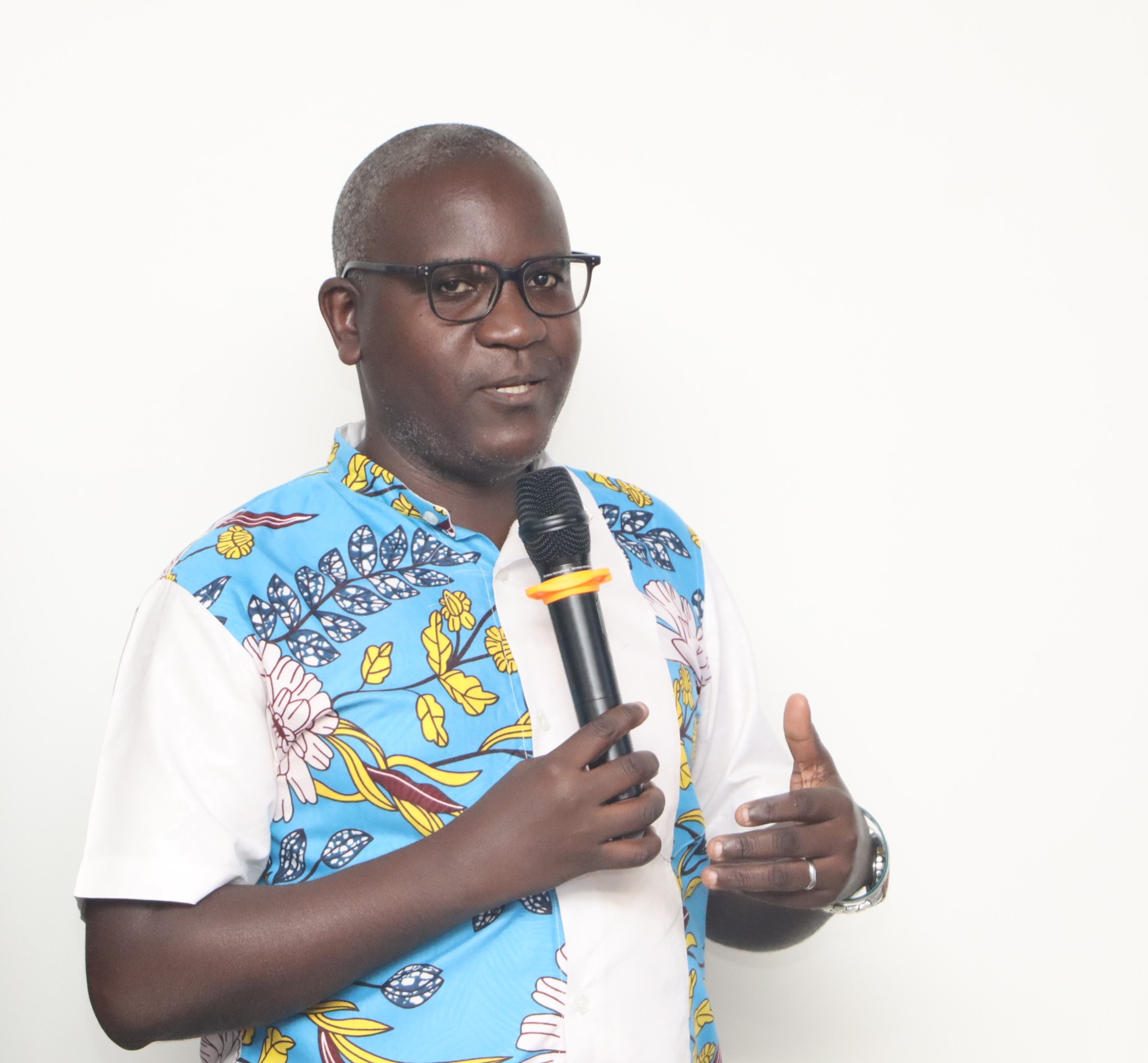
Book Outline
- Introduction: Publication Journey. (Prof. Elisam Magara)
PART I: Foundations of Academic Authorship.
- Conceptual Foundations of Academic Authorship
Elisam Magara and Joseph Kiplangat.
- Archives as a Source of Information for Academic Writing
David Luyombya, Sylivia Namujuzi and Francis Ekwaro
- The place of Oral History in Contemporary Writing
Elisam Magara, James Nkanshah-Obrempong and Nthan Nzyoka Joshua
- Managing Ethical Dilemmas in Academic Writing
Maria Tsvere, Tsitsi Kanonge and Joselin Chigwada
- The Role of Copyright and Neighbouring Rights in Protecting Works of Authors and Publishers in Uganda
Ronald Kakungulu Mayambala
PART II: Managing the Publication Process
- A Manuscript: From Inception to Publication
Sarah Mirembe Kyankya
- Managing Co-Authorship in Academic Writing
Gankhanani Moffat Moyo
- Managing Illustrations and Visual Artworks in Academic Writing
Bob Magara Rutatugirwa
- Tapping into Open Access Platforms for Gainful Authorship
George Muganga
- Managing the Costs in Academic Authorship
Aloysius Rukundo
- The Important Translation in Publication
Monica Mweseli
- Citations and Referencing in Academic Writing
Clement Lutaaya Nabutto, Namujuzi Sylivia, and Daviv Luyombya, Makerere University
- Referencing Management Software In Academic Writing
Odeke Moses Osamai and Constant Okello-Obura
- Compliance with International Bibliographic Control Standards in Academic Authorship
Elisam Magara and Dniel Osinde
PART III: Secondary Services in Academic Writing
- Journal Impact Factor and its Role when Submitting a Publication Article
Tonny J. Oyana and Caroline Ilako
- Managing Mentorship Programmes for Scholarly Writing
Diyoshak Rhoda Danladi and Elisam Magara
Report by
Jane Anyango, Principal Communication Officer CoCIS
Ritah Atukwatse, Journalism and Communication Student (2nd Year)
Fred Kanwagi, Journalism and Communication Student (3rd Year)
Computing & IS
CoCIS CIPSD Short Courses Jan-Mar 2026
Published
1 month agoon
January 19, 2026By
Mak Editor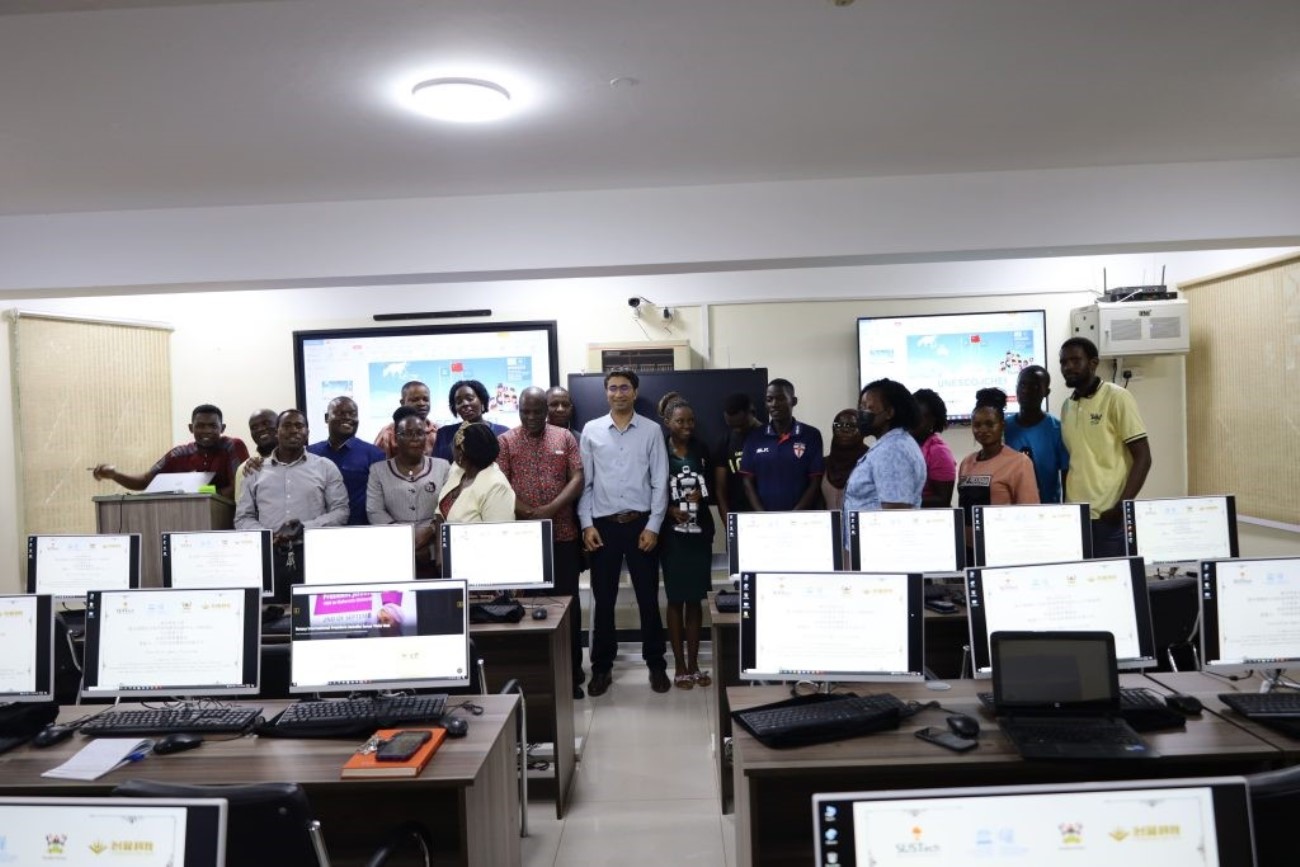
Makerere University College of Computing and Information Sciences (CoCIS) is the main ICT Training, Research and Consultancy Centre in Makerere University. The College has six Academic departments comprising of the Department of Computer Science, Department of Networks, Department of Information Technology, Department of Information Systems, Department of Library and Information Sciences, and the Department of Records and Archives management.
In addition to the mainstream degree programmes, CoCIS has a specialized Center for Innovations and Professional Skills Development (CIPSD) which delivers state-of-art training in ICT e.g. the Cisco Networking Academy for Cisco related courses, the Microsoft IT Academy Program for Microsoft related courses, International Computer Driving License course, Oracle Certified Training center for Oracle, Linux and Unix Training center. CIPSD also offers Machine Learning, Big Data Analytics, Data Science, Artificial Intelligence (AI) and Ethical Hacking as online courses. The College is an authorized Testing center, operating under PearsonVUE and Kryterion. Listed in the table (see download below) are the courses currently offered at the Center with their next start dates, duration, and cost.
- All courses are at affordable fees catering for Students, Vacists, Professionals and
- Anyone who wants to start a career in ICT or polish his/her ICT skills.
Contact Information
E-mail: psd.cis@mak.ac.ug
Tel: +256 782 512 897 +256 752 779964
URL: https://cocis.mak.ac.ug/cipsd/
Computing & IS
Makerere University and SoonPay Sign Landmark MoU to Champion Blockchain Innovation and Financial Inclusion Across Africa
Published
3 months agoon
December 9, 2025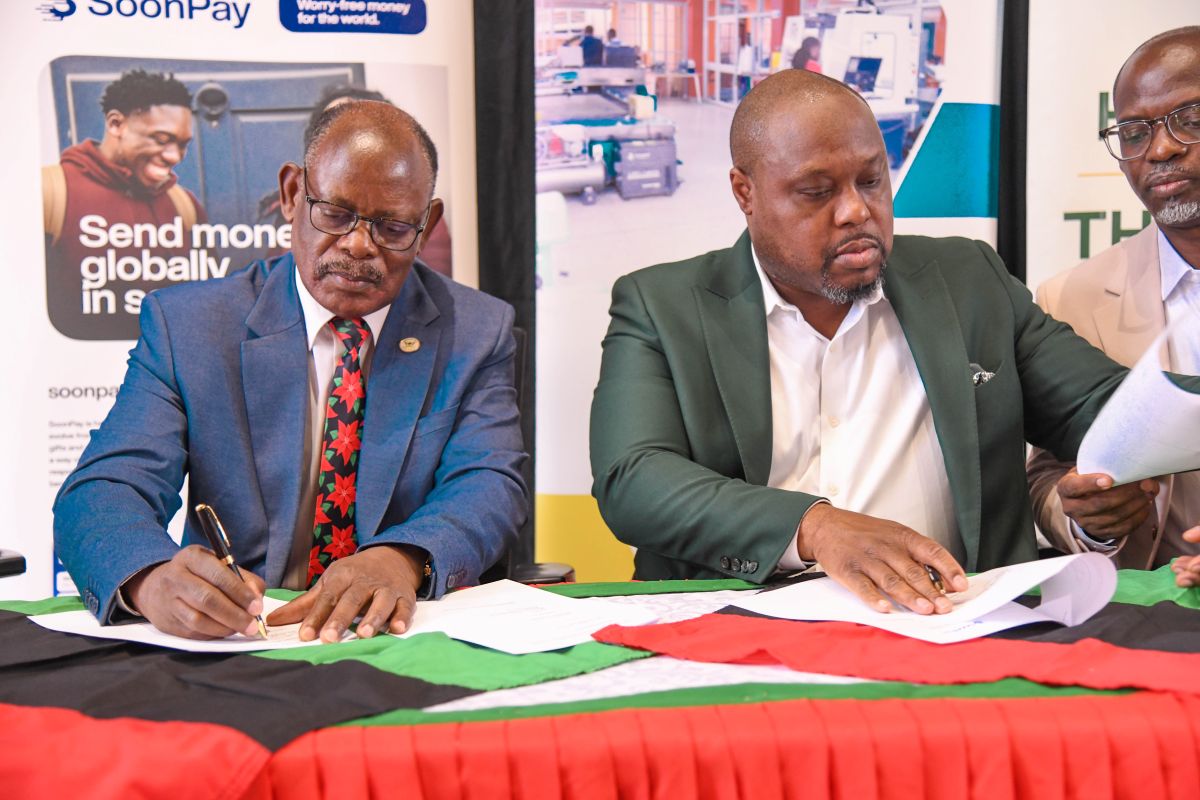
On Saturday 6th December 2025, Makerere University entered into a ground-breaking partnership with the U.S.-based fintech company SoonPay, marking a major breakthrough in Uganda’s push to integrate emerging technologies into research, innovations, higher education and national development.
The Memorandum of Understanding was signed by the Vice Chancellor of Makerere University, Prof. Barnabas Nawangwe and Mr. Frantz Morency, Chief Executive Officer of SoonPay L.L.C, during the Makerere University Financial Innovation Day, a high-energy event that brought together over 800 students, faculty, industry partners, and technology leaders.
The MoU institutionalizes the collaboration of Makerere University through the Makerere University Technology and Innovation Centre and SoonPay LLC. The signing ceremony was witnessed by Dr. Cathy Ikiror Mbidde-Manager of Makerere University Technology and Innovation Centre and Ms. Vuyani Jones-Blockchain Infrastructure Manager.
Organized by the Makerere University Technology and Innovation Centre (MUTIC) in partnership with SoonPay, the event ran under the theme “Innovation and Financial Inclusion for a Secure Future.” It featured keynote speeches, panel discussions, live demonstrations, and the signing of a Memorandum of Understanding (MoU) that will usher in a new era of blockchain training, research, and innovation at Uganda’s premier university.
The event was supported by several partners, including the National Social Security Fund (NSSF), the Uganda Blockchain Association, the National Planning Authority (NPA), Prudential Uganda, and other technology and financial sector stakeholders.
A Strategic Partnership to Transform Africa’s Digital Landscape
The newly signed MoU between Makerere University and SoonPay is expected to unlock a broad set of opportunities for students and academic staff. These include blockchain education and certification, joint research projects, internships and apprenticeships, the development of new financial inclusion tools, and the integration of emerging technologies into existing academic programs.
SoonPay’s entry into Uganda is part of a larger vision to expand blockchain-driven solutions across Africa—a continent its executives say has historically been excluded from global technological revolutions.

Impressed by the overwhelming numbers of students who filled the Yusuf Lule Central Teaching Facility Auditorium to the brim, the Vice Chancellor, said: “Dear students, by choosing to stay on campus, on a Saturday, and after completing your examinations, you have demonstrated your willingness to learn and embrace the blockchain technology as well as emerging technologies in general.”
Stating that blockchain technology is the future for Africa, the Vice Chancellor challenged the students to take charge of Africa’s digital transformation.
“You are the people to emancipate Africa from marginalization,” he declared. “What will liberate our continent is not politics—we have done too much of that. It is education, research, innovation, and technology.”
Prof. Nawangwe delivered a sweeping historical reflection, tracing Africa’s technological setbacks to the destruction of its civilization over several centuries.
“For 400 years, Africans were taken away as slaves. For another 200 years before that, our lands, knowledge systems, and technologies were disrupted,” he said. “This represents around 600 years of destruction and marginalization of African civilization.”
He urged students not to miss the opportunity that modern technologies such as blockchain and artificial intelligence present.
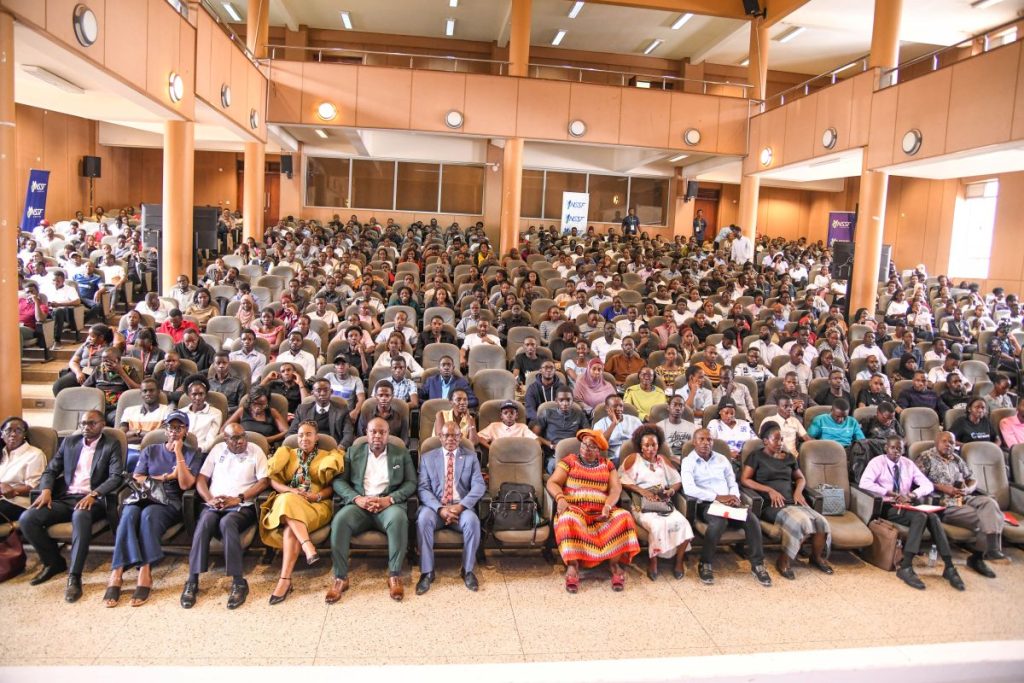
“We are lucky to be living in an era where Africa is free,” the Vice Chancellor said. “My hope is that we do not wait another 600 years to take advantage of this freedom. The most important resource we have is not minerals; it is human resources—you, the youth.”
Prof. Nawangwe reminded students that Makerere’s reputation as the “intellectual capital of Africa” places immense responsibility on their shoulders.
“You are among the very few Ugandans privileged to study at Makerere University. University graduates are not supposed to wait for jobs—you are the ones expected to create them,” he said.
Why Blockchain? Transparency, efficiency, and global competitiveness
The Vice Chancellor highlighted the transformative potential of blockchain technology, especially in improving financial systems—a sector he described as the backbone of any modern economy.
“Without efficient financial systems, nothing else works,” he said. “Blockchain offers transparency, reduces fraud, and minimizes corruption. If applied properly, it could transform how we manage finances, education, and even our natural resources, including the oil that Uganda is about to exploit.”
He added that Makerere’s students are already demonstrating global competitiveness in innovation, winning international competitions and creating products across multiple disciplines.
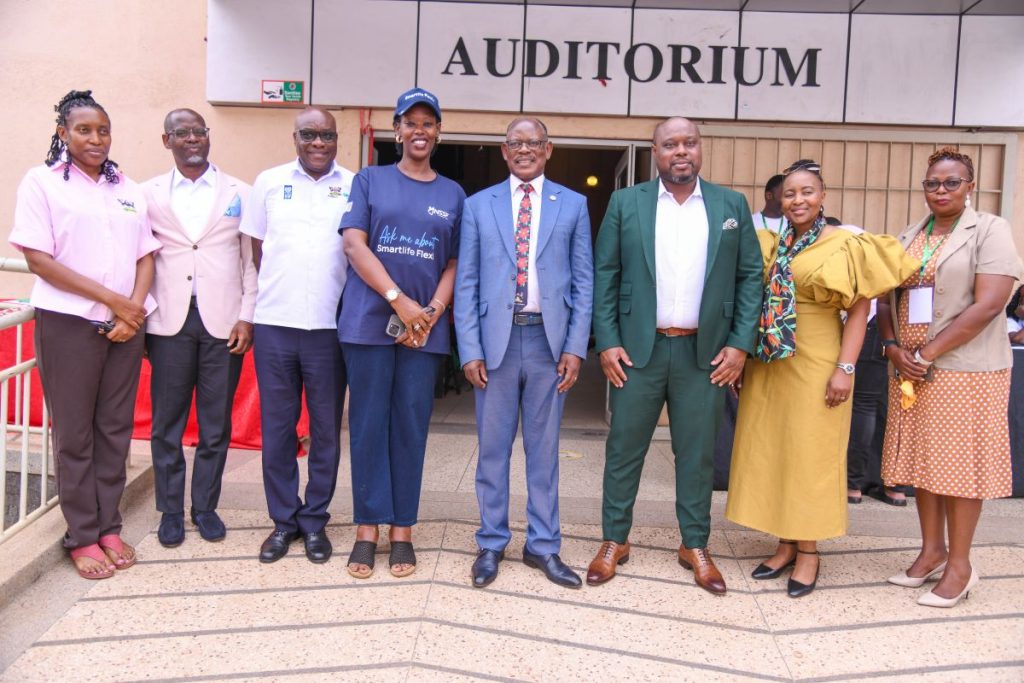
“The brains are here,” he said. “What we need is exposure to opportunities and technologies that will help you turn your ideas into impactful solutions.”
In a passionate keynote address, SoonPay CEO, Mr. Frantz Morency underscored why his company chose Uganda as its launchpad for blockchain adoption in Africa.
“As the Professor said, we have been excluded for more than 400 years,” he stated. “Even though we’re an American company, we know our roots. Look around the SoonPay team—you will see yourselves. We chose Uganda intentionally.”
Mr. Morency pointed to Africa’s dismal participation in the global blockchain economy. “In the U.S., blockchain generates $2.6 billion—61.7 percent of the world’s share. The rest of the world generates $1.6 billion. And Africa, just $14 million, or 0.33 percent,” he said. “That is unacceptable.”
He attributed the gap not to a lack of interest among young Africans, but to a lack of opportunity. “You want to learn—what you lacked was opportunity,” he said. “With the support of Professor Nawangwe, Dr. Cathy Ikiror Mbidde, and Dr. Margaret Nagwovuma, SoonPay wants to bridge that gap in education, technology, and economic opportunity.”
Mr. Morency also shared his personal journey, connecting his Haitian background to the aspirations of African youth.
“Many of you may see me as ‘the guy in the green suit,’ but I come from a small island—Haiti,” he said. “My mother never finished first grade; my father never finished second grade. What they gave me was integrity, work ethic, and the determination to seize opportunities when they came.”
He urged students not to seek opportunities abroad out of desperation, but to build meaningful careers in Africa. “Africa does not need to lose its talent. Why can’t you build here? Why can’t businesses, innovation, and prosperity thrive here?” he said. “Educate yourselves. Build. Create. Grow.”
A milestone for Makerere and Africa
Dr. Cathy Ikiror Mbidde, Head of the Makerere University Technology and Innovation Centre (MUTIC), described the event as a “major milestone” in the institution’s evolution.
“We are here to witness one of the key emerging technologies and to reflect on how universities can embrace such milestones,” she said. “Everyone has a role to play in transforming our lives through research, ideas, and projects.”
She thanked SoonPay for choosing Makerere University, noting that students had been “instrumental” in pushing for blockchain education.
“You have been constantly asking questions, pushing us, and showing deep curiosity about blockchain. Today, we finally have answers,” she told the students.
Beyond the speeches, the event showcased SoonPay’s blockchain infrastructure, student-led innovations, and a roadmap for integrating digital finance tools into university programs. Partners such as NSSF emphasized the importance of preparing young people for a digital future.
With the MoU now in force, Makerere University is positioning itself as a regional hub for blockchain education, research, and innovation. The partnership with SoonPay aims not only to train students but to shape Uganda’s—and Africa’s—next generation of tech leaders.
Trending
-

 Humanities & Social Sciences4 days ago
Humanities & Social Sciences4 days agoMeet Najjuka Whitney, The Girl Who Missed Law and Found Her Voice
-

 Health1 week ago
Health1 week agoUganda has until 2030 to end Open Defecation as Ntaro’s PhD Examines Kabale’s Progress
-

 Agriculture & Environment7 days ago
Agriculture & Environment7 days agoUganda Martyrs Namugongo Students Turn Organic Waste into Soap in an Innovative School Project on Sustainable Waste Management
-

 General1 week ago
General1 week agoMastercard Foundation Scholars embrace and honour their rich cultural diversity
-

 General3 days ago
General3 days ago76th Graduation Highlights
